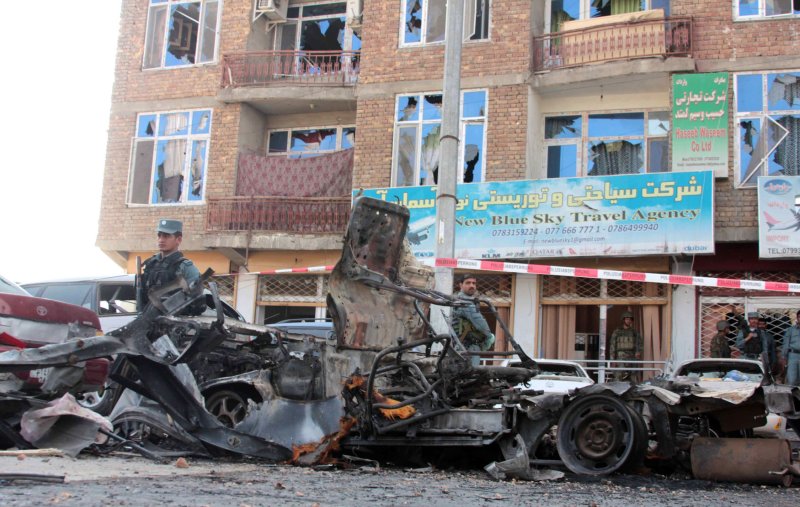Afghanistan military secure battle zone as they regained control of Kabul Monday, after an 18-hour attack by the Taliban on the capital city that paralyzed Kabul's government district and left 36 insurgents dead. Afghan President Hamid Karzai blamed NATO and the Afghan military for the lack of intelligence to allow the attack to happen. UPI |
License Photo
KABUL, Afghanistan, April 17 (UPI) -- Military and intelligence officials said the sophistication of the coordinated attacks in Kabul, Afghanistan, show a troubling growth of the Haqqani network.
While praising Afghan security forces' response and downplaying Sunday's attacks on targets throughout Kabul, Western officials said privately they agreed with President Hamid Karzai's comments that the attacks were an "intelligence failure for us, and especially NATO," The New York Times reported Tuesday.
The officials said the operation raises two key questions: whether militants can now mount such bold assaults more frequently and whether the Afghan government would be able to thwart such plots after 2014 when Western troops withdrawal and access to allied intelligence assistance is limited.
"It certainly seems there's some kind of gap in intelligence collection or in sifting through the volume of what's collected," John Wood, an associate professor at the National Defense University, told the Times. Wood also was senior director for Afghanistan on the National Security Council in the Bush and Obama administrations.
The attacks by the Haqqani network demonstrated the Taliban offshoot can create a system of logistical support and planning necessary to mount actions below the radar of intelligence groups focused on it, officials told the Times.
While Afghan officials said they think Sunday's attacks originated in Pakistan, where Haqqani leaders hide, U.S. officials said they didn't trace the origin of the attack to Afghanistan's neighbor.
"Though the evidence leads us to believe that the Haqqani network was involved in this, it doesn't lead back into Pakistan at this time," Gen. Martin E. Dempsey, the chairman of the Joint Chiefs of Staff, told reporters in Washington.
While Karzai blamed the failure to detect the operation mainly on NATO, Afghan lawmakers also directed blame at Afghanistan's intelligence agency, the National Directorate of Security.
"There is a big question mark: How did they manage to bring all these weapons and all this ammunition and rockets and keep it here in the vicinity of the sensitive installation of Afghan government and international community?" asked Fatima Aziz, a Kunduz lawmaker and internal security committee member.















